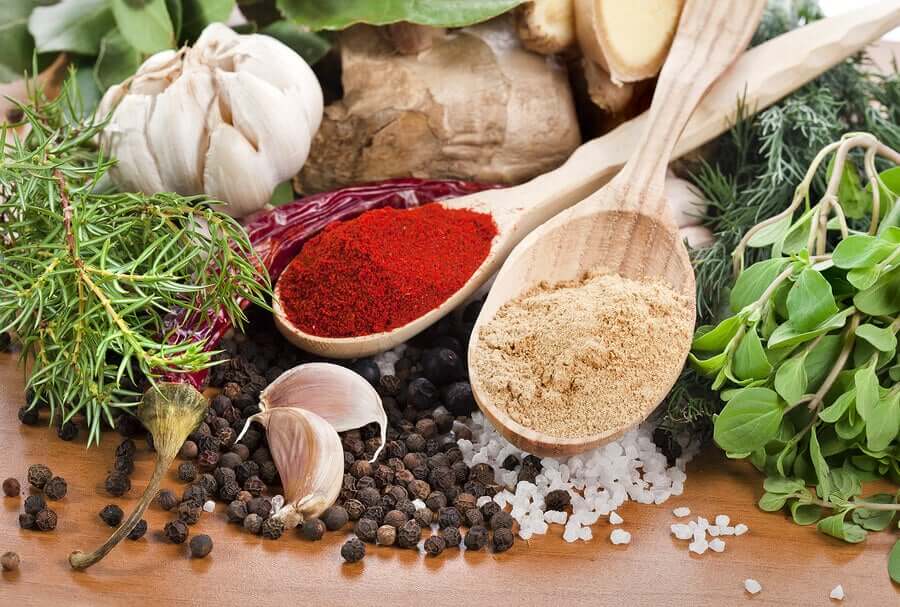How to Eat Well During Lockdown


Written and verified by the nutritionist Anna Vilarrasa
One of the most common questions these days is how we can eat well during lockdown. Do we need to make any changes in our eating habits?
Here what we all should keep in mind.
Learning to eat well during lockdown
Having a good routine and discipline in our daily eating habits can help us a lot in this situation and will keep us healthy. It can help us get through the lockdown with less stress. It will also allow us to carry out our daily routines with the same energy. Also, it’s important to stay strong to deal with any problems or illnesses that may come our way.
We strongly recommend that you organize your meals and shopping lists well. This way, you’ll avoid having to go out shopping more than necessary and you’ll spend less time shopping when you’re out.
In addition, there are a few nutrients that you should make sure you’re getting enough of.
Fruit rich in vitamin C
During these days of confinement, you should try to eat at least three pieces of fruit a day. Fruit provides us with a good amount of vitamins and antioxidants. We can eat them for dessert, at breakfast, or between meals if we’re hungry. You must also try to avoid sugary snacks and sweets.
The ideal thing is that at least one of these is a fruit rich in vitamin C. We can choose between:
- Pineapples
- Oranges, lemons, and grapefruit
- Strawberries and blueberries
- Kiwi
Sources of quality protein
You also need to have good sources of protein in your main meals. Although you may not be getting as much physical exercise these days, your body still needs it. Many body parts and organs need protein, and by consuming enough you’ll avoid losing muscle mass.
In addition, they’re foods that are satisfying and easily digestible (except for legumes, for some people). Protein is ideal for a light dinner that will feel good and help you rest. Here’s a sample menu:
- For breakfast: oatmeal, yogurt, milk, nuts, or wholemeal bread.
- At lunch and dinner: blue and white fish, eggs, legumes, and white meat. You can also take advantage of vegetable alternatives, such as tofu, tempeh or seitan.

Find out more: What is Lean Protein and How can it Help Your Diet?
Colorful vegetables
Vegetables are a great source of fiber, antioxidants, and other nutrients. This is of interest to us because they’re the ideal food for our intestinal bacteria, and they’ll help us regulate our digestive transit. Including more vegetable foods in the diet is beneficial to our health in many different ways.
Eat them mainly at lunch and dinner. They can be either be the first course or a side dish. Softer foods, such as creamed soups or cooked vegetables, are best for dinner.
Foods rich in probiotics
Now, more than ever, we must take care of our intestinal flora. This has beneficial effects on both the digestive and the immune systems. Foods rich in bacteria, such as yogurt, kefir, tempeh, kombucha, sauerkraut or miso, can be taken in small portions daily.
Foods rich in tryptophan
Tryptophan is a component of proteins – an amino acid – and a precursor of serotonin. Serotonin is a hormone that plays a key role in mood and emotional balance. This can be critical in these days when you may be more exposed to nervousness, stress, and anxiety.
So, eating foods rich in tryptophan during the day will help you regulate its secretion well. The foods that are richest in this amino acid are dairy products, almonds, bananas, sesame and pumpkin seeds, avocados, and meat.
Find out more: How to Sleep Well During Lockdown
Whole grains
In this group of food, we have potatoes, rice, pasta, bread, quinoa, or couscous. These are some of the main sources of energy, especially if you have to continue working at home, studying. or if you’re planning good physical exercise sessions.
If you don’t have as much of an appetite, or you’ve reduced your daily activity a lot, then you can reduce our intake of carbohydrates. And, if you don’t eat them at dinner time, then it doesn’t matter. It’s best to choose the whole-grain versions, which have more fiber and nutrients than the refined versions.
Spices and culinary herbs
Culinary spices and herbs are commonly used in cooking because of their ability to give flavor and aroma to dishes. If we use them in these days in our cooking, then we’ll create more appetizing recipes. We mustn’t forget to try to increase our enjoyment at mealtimes.
In addition to this, spices and herbs have many beneficial properties. Most of them have anti-inflammatory, antioxidant, and cholesterol-regulating effects.

Other recommendations
Besides knowing which foods are best for us during this time of confinement, other guidelines will help you improve our diet these days. This will help you to prevent unhealthy improvising:
- Prepare a healthy menu for the whole week.
- Eat at more or less regular times.
- Avoid eating while working or doing other activities. Devote time to eating in a relaxed atmosphere.
- Have some food in the pantry in case at some point you don’t feel like cooking or you run out of fresh food.
- Always stay hydrated by drinking plenty of water, soups, or infusions. Reduce your consumption of alcohol and sugary, energetic, or stimulating drinks as much as possible.
Knowing how to eat well during lockdown
With these daily guidelines on what to eat during confinement, you’ll be able to eat healthily and avoid unhealthy improvisation in the kitchen and when you shop. This will help you to take care of your body, and your emotional well-being. In addition, you’ll be able to avoid snacking, which is more common these days, either due to anxiety, boredom, or having too much food at hand.
Give these tips a try!
All cited sources were thoroughly reviewed by our team to ensure their quality, reliability, currency, and validity. The bibliography of this article was considered reliable and of academic or scientific accuracy.
- Carr A, Maggini S. Vitamin C and Immune Function. Nutrients. Noviembre 2017. 9(11):1211.
- Jiang TA. Health Benefits of Culinary Herbs and Spices. Journal of AOAC International. Marzo 2019. 1,102(2): 395-411.
- Kaluzna J et al. How important is tryptophan in human health? Critical Reviews in Food Science and Nutrition. 2019;59(1):72-88.
- Pencharz, PB. Recent developments in understanding protein needs – How much and what kind should we eat? Applied Physiology, nutrition and metabolism. Mayo 2016;41(5):577-80.
- Roman P, et al. Probiotics in digestive, emotional, and pain-related disorders. Behavioural Pharmacology. Abril 2019; 29 (2 and 3 Special Issue):103-119.
- Slavin JL, Lloyd B. Health benefits of fruits and vegetables. Advances in Nutrition. Julio 2012. 1;3(4):506-516.
- World Health Organization. Guidance: food and nutrition tips during self-quarantine.
This text is provided for informational purposes only and does not replace consultation with a professional. If in doubt, consult your specialist.








